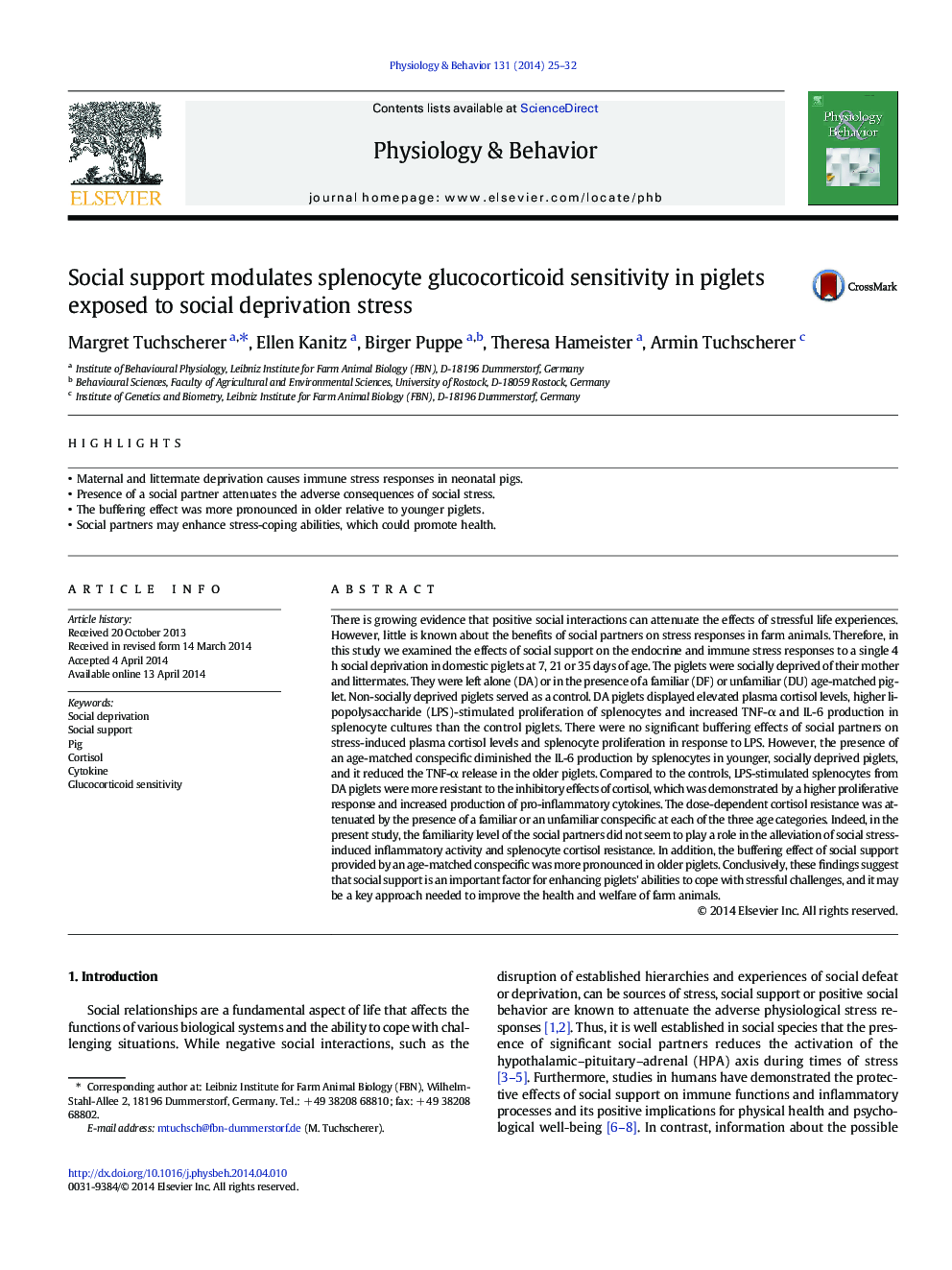| Article ID | Journal | Published Year | Pages | File Type |
|---|---|---|---|---|
| 5924059 | Physiology & Behavior | 2014 | 8 Pages |
Abstract
There is growing evidence that positive social interactions can attenuate the effects of stressful life experiences. However, little is known about the benefits of social partners on stress responses in farm animals. Therefore, in this study we examined the effects of social support on the endocrine and immune stress responses to a single 4 h social deprivation in domestic piglets at 7, 21 or 35 days of age. The piglets were socially deprived of their mother and littermates. They were left alone (DA) or in the presence of a familiar (DF) or unfamiliar (DU) age-matched piglet. Non-socially deprived piglets served as a control. DA piglets displayed elevated plasma cortisol levels, higher lipopolysaccharide (LPS)-stimulated proliferation of splenocytes and increased TNF-α and IL-6 production in splenocyte cultures than the control piglets. There were no significant buffering effects of social partners on stress-induced plasma cortisol levels and splenocyte proliferation in response to LPS. However, the presence of an age-matched conspecific diminished the IL-6 production by splenocytes in younger, socially deprived piglets, and it reduced the TNF-α release in the older piglets. Compared to the controls, LPS-stimulated splenocytes from DA piglets were more resistant to the inhibitory effects of cortisol, which was demonstrated by a higher proliferative response and increased production of pro-inflammatory cytokines. The dose-dependent cortisol resistance was attenuated by the presence of a familiar or an unfamiliar conspecific at each of the three age categories. Indeed, in the present study, the familiarity level of the social partners did not seem to play a role in the alleviation of social stress-induced inflammatory activity and splenocyte cortisol resistance. In addition, the buffering effect of social support provided by an age-matched conspecific was more pronounced in older piglets. Conclusively, these findings suggest that social support is an important factor for enhancing piglets' abilities to cope with stressful challenges, and it may be a key approach needed to improve the health and welfare of farm animals.
Related Topics
Life Sciences
Biochemistry, Genetics and Molecular Biology
Physiology
Authors
Margret Tuchscherer, Ellen Kanitz, Birger Puppe, Theresa Hameister, Armin Tuchscherer,
